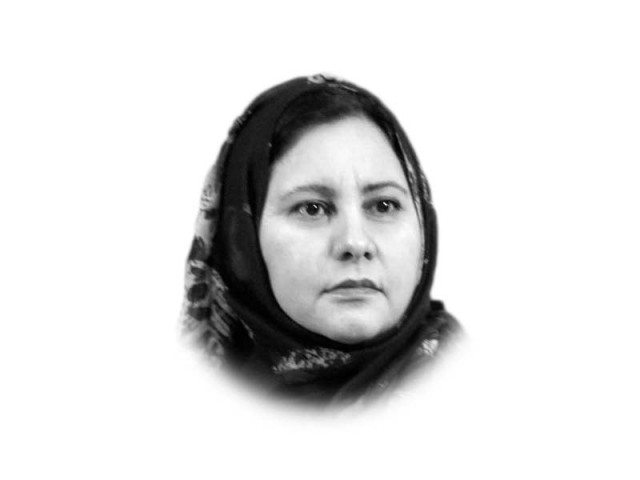Afghan integration

The third round of UN-initiated Doha talks to integrate Afghanistan into the world economy has been a dead-end. Mainstream media has been flooded with accusations of the Taliban regime’s inaction over women rights. The distance between the West and the Islamic Emirate has remained unreduced as Rosemary DiCarlo, the UN undersecretary for peacebuilding, ruled out recognition of the Kabul regime unless the Taliban ended curbs on women’s education and participation in public life.
Kabul, however, has remained unyielding on its stance on women rights. It accepted participation in the third round only on the condition that Afghan right groups will be kept out. Kabul has also advised the West to try to end stagnation between the two sides, start bilateral relations and stop interfering in the internal matters of the country.
“We acknowledge women are facing issues, but they are internal Afghan matters and need to be addressed locally within the framework of Islamic Sharia,” said Zabihullah Mujahid, the Afghan spokesman.
Ironically, the antithesis of the Western attempt to keep Afghanistan isolated is happening in its north. The Taliban delegation in the SCO was taken hand in hand, and Putin on the occasion deemed the Taliban their ‘allies’ in countering terrorism. Moscow has also voiced its willingness to make Afghanistan a member of the SCO. Before that the Taliban had also been present in the SPIEF, in Saint Petersburg, making contacts and agreements with friends and allies of Russia and China, now referred to as the Global South.
One must not forget that the stubbornness of the sturdy Afghans has been the reason for the demise of empires. The British, the Soviets and now the US and NATO, all have had their lessons in fighting the tribal groups that have paid the price for protecting their freedom and their religious and cultural values with their blood. One must also remember the sequence of events regarding the Ukraine War that had actually begun in 2014, with the Euromaidan, the annexation of Crimea and the Donbas War. But Russia invaded Ukraine with its forces only in Feb 2022, seven months after US-NATO’s decisive defeat and withdrawal from Afghanistan.
But that is not all, with the West evicted from Afghanistan, and their prior withdrawals from Iraq, Syria and Libya, the ensuing power-vacuum was immediately filled by the likes of Russia, Turkey and China. This eased the Arabs’ agreement to end their decades-long enmity with the Persians and on the heels of this unity came the October 7 Hamas attack on Israel.
International economic fronts led by China or Russia, which had remained as backburners for long, have also come to fruition in the last few years and we hear of the expansion the SCO, the SPIEF and the BRICS and the rise of the Global South.
One should reckon that Afghanistan had been one of the two victims of the 19th century Great Game. Then too the reasons for the conflict were that the Soviet Empire needed to reach the warm waters of the Arabian Sea and the British Empire wanted to stop it from crossing the Afghan territory. The Soviets also feared Afghan Islamisation trends to seep into its satellite states of Central Asian. Post-Soviet Afghan War, the West and their ally India came running into Afghanistan in a bid to gain footing in the heart of Asia and to pluck the low-hanging fruit of Central Asia, a nascent ground waiting for its era of development. So, today, the integration of the Central Asian States and of Afghanistan has to be primary in both strategic and economic policies of China and Russia — and they will be taking no chances on the matter.
The Central Asia Regional Economic Corridors, CAREC, is a pack of six corridors connecting all the Central Asian states with Afghanistan and Pakistan on the one side and to Russia, China and Europe on the other. The plan is to connect Kabul with the CPEC route in Khyber-Pakhtunkhwa, and connecting another road from Kandahar to Quetta and Gwadar — when the two roads will be connecting with CAREC roads in the north. This network will later be joining with the Tehran-Zahedan-Quetta route. So, guess what? Integration with the world is not an unfulfillable dream of rag-tag, war-torn, cash-strapped Afghanistan, it is the connectivity need of Eurasia, Central Asia and Far East. It is the future of the global economy; it is a plan to pull the world out of an impending economic recession.
According to McKinsey Global Institute’s 2019 report, by 2040 Asia will be producing 50% of global GDP by 2040 and driving 40% of the world’s consumption. This estimate was made before the US withdrawal from Afghanistan. But now, five years later, with all the geopolitical shifts mentioned above, and with the expected geoeconomic shift resulting from the doings of SCO, SPIEF, BRI and BRICS, this percentage is bound to be bigger.
So, if it weren’t for the chivalrous Afghan tribals whom the West labels as unruly and uncivilised; and if it weren’t for the fact that they refused to integrate with the US who was willing to put them in power if they would allow them to exploit their mineral wealth and keep using their land as a springboard into Central Asia — the US and all its allies, including India, would be ruling over Afghanistan today. And from that vantage point, they would be able to threaten Russia and China from up-close. And the West would, even in the projected Asian Century, still be able to syphon its riches right from the heart of Asia to the balance sheets of the Wall Street.
















COMMENTS
Comments are moderated and generally will be posted if they are on-topic and not abusive.
For more information, please see our Comments FAQ